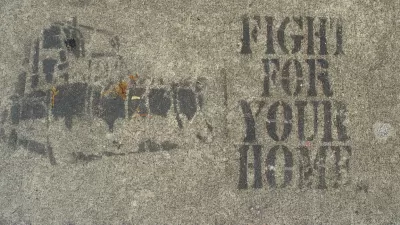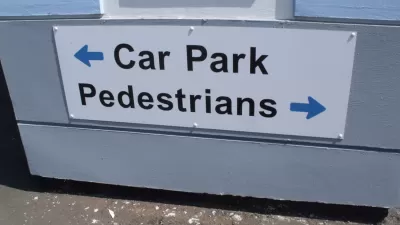Multi-modalism
An Appeal for Churches to Embrace Multi-Modalism
As a result of the dominant development patterns and transportation practices of the 20th century, churches have receded in their role as an anchors for neighborhoods and broader communities.

A Call to Flâner, for Spatial Justice
The concept of the flâneur was created in the 19th century in response to the encroaching speed and efficiency of the Industrial Age. Can the flâneur now fashion a political response to the Age of the Automobile?

How Useful is Walkability: Are You Oriented to Walk?
The physical requirements for walkability—like narrow streets and wide sidewalks—aren't always enough to compel the activity of walking. How can we reorient toward the primal activity of walking?
Multi-Modal Level-Of-Service Goes Mainstream: Chickens Can Finally Cross Roads
Why didn’t the chicken cross the road? Because pedestrian Level-Of-Service was below “C”.
Pagination
- First page
- Previous page
- 1
- 2
- 3
- 4
- 5
- 6
- 7
- 8
Urban Design for Planners 1: Software Tools
This six-course series explores essential urban design concepts using open source software and equips planners with the tools they need to participate fully in the urban design process.
Planning for Universal Design
Learn the tools for implementing Universal Design in planning regulations.
planning NEXT
Appalachian Highlands Housing Partners
Mpact (founded as Rail~Volution)
City of Camden Redevelopment Agency
City of Astoria
City of Portland
City of Laramie


































